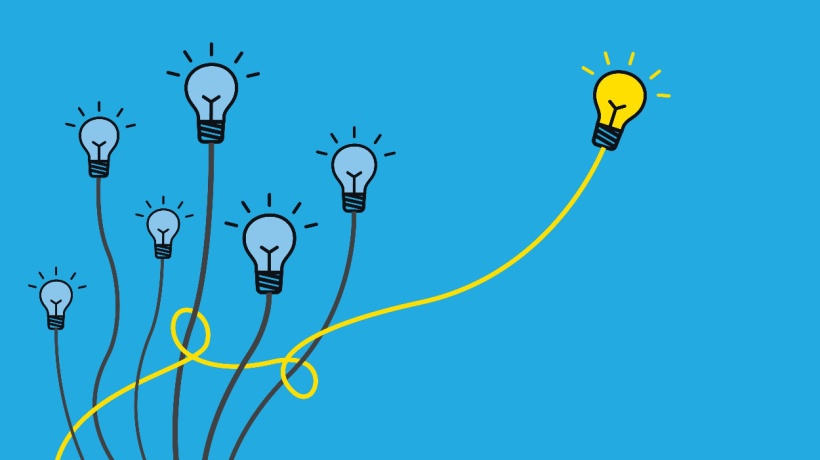
Nano-learning is gaining popularity in postgrad education. It is trending in postgrad education. It's bite-sized and focused. Students grasp quick, specific concepts. It fits busy schedules well. It helps in retaining information better. This refers to short, focused learning sessions that deliver particular pieces of knowledge or skills in a concise manner. This educational approach is revolutionizing traditional teaching methods by offering flexibility, accessibility, and efficiency to learners. This article examines nano learning for postgrads, noting benefits, challenges, and future implications. This offers brief, focused educational opportunities. Challenges include content depth and assessment reliability. Its future impact on education is significant.
Definition and Characteristics of Nano Learning:
Nano-learning involves the delivery of bite-sized educational content, typically in the form of micro-courses, mini-lessons, or brief modules. These learning units are designed to address a single learning objective or skill, making them highly targeted and focused. Nano-learning: short bursts of education, flexible for busy schedules, suits diverse learning styles. Traditional courses? Nope. Actually, this often incorporates interactive elements, such as quizzes, simulations, and multimedia resources, to enhance engagement and retention.
Benefits of Nano Learning for Postgraduate Students:
- Flexibility: Postgraduate students often juggle multiple commitments, including work, research, and personal responsibilities. Nano-learning: learn anytime, anywhere. Fits busy lives. No routine disruptions.
- Customization: Nano learning enables postgraduate students to customize their learning experiences based on their individual needs, interests, and learning goals. Students customize learning with chosen topics. Tailored journeys meet unique needs.
- Efficiency: In today's fast-paced world, time is of the essence. It saves time. It's efficient for postgraduates. They learn fast. It's effective. Skills and knowledge are acquired rapidly. Traditional courses are bypassed. With concise and focused content, learners can achieve learning outcomes in a fraction of the time required for traditional coursework.
- Retention: The condensed nature of nano-learning promotes higher levels of engagement and retention among postgraduate students. This simplifies complex ideas. It uses interactive methods. This boosts understanding and memory. So, learning becomes more effective.
- Lifelong Learning: Nano-learning fosters a culture of lifelong learning among postgraduate students, encouraging continuous skill development and professional growth beyond the confines of formal education. This helps students access relevant resources easily. It keeps them updated in their careers. They stay informed about advancements in their fields. This empowers lifelong learning.
Challenges and Considerations:

While nano-learning offers numerous benefits, it also presents certain challenges and considerations for postgraduate education:
- Quality Control: Maintaining the quality and rigor of educational content in these environments can be challenging, particularly when condensing complex topics into brief modules. Educators must ensure that these materials adhere to academic standards and provide meaningful learning experiences for students.
- Technology Requirements: Nano learning often relies on digital platforms and technologies for content delivery, requiring students to have access to reliable internet connectivity and compatible devices. Addressing technological barriers is essential to ensure equitable access to these opportunities for all postgraduate students.
- Assessment and Evaluation: Assessing student learning and performance in these settings may pose challenges due to the fragmented nature of content delivery. Educators must develop effective assessment strategies that accurately measure student mastery of learning objectives within the context of nano learning.
- Integration with Traditional Education: Integrating nano-learning initiatives with existing postgraduate programs and curricula requires careful planning and coordination. Educators must strike a balance between incorporating these opportunities into traditional coursework and ensuring continuity and coherence in students' learning experiences.
Implications for the Future of Education:
The rise of nano learning has profound implications for the future of postgraduate education, shaping the way educators design, deliver, and assess learning experiences:
- Personalized Learning Pathways: Nano learning empowers postgraduate students to chart their own learning pathways, selecting and sequencing educational modules according to their interests and learning objectives. This personalized approach to learning promotes autonomy and self-directed learning among students, fostering a sense of ownership and agency over their educational journey.
- Micro Credentialing and Stackable Credentials: Nano learning aligns with the growing trend towards micro-credentialing and stackable credentials in higher education. By earning badges, certificates, or micro degrees through completing these modules, postgraduate students can acquire targeted skills and credentials that are immediately applicable in the workforce, enhancing their employability and professional prospects.
- Continuous Professional Development: Nano learning facilitates continuous professional development for postgraduate students, enabling them to stay relevant and competitive in rapidly evolving industries. By engaging in ongoing, bite-sized learning experiences, professionals can upskill or reskill in response to changing job market demands, ensuring career longevity and adaptability.
- Global Access to Education: The digital nature of this transcends geographical boundaries, offering global access to high-quality educational resources for postgraduate students worldwide. This democratization of education has the potential to bridge the gap between learners in different regions, socioeconomic backgrounds, and educational institutions, fostering a more inclusive and equitable learning landscape.
Conclusion:

In conclusion, this represents a paradigm shift in postgraduate education, offering a revolutionary approach to teaching and learning that prioritizes flexibility, efficiency, and personalization. By harnessing the power of bite-sized educational content and digital technology, it opens up new possibilities for postgraduate students to engage in lifelong learning, skill development, and professional advancement. While challenges exist, the transformative potential of nano learning in shaping the future of education cannot be overlooked. As educators and institutions embrace this innovative educational model, they pave the way for a more accessible, adaptable, and dynamic learning environment for postgraduate students worldwide.



Post a Comment
0 Comments